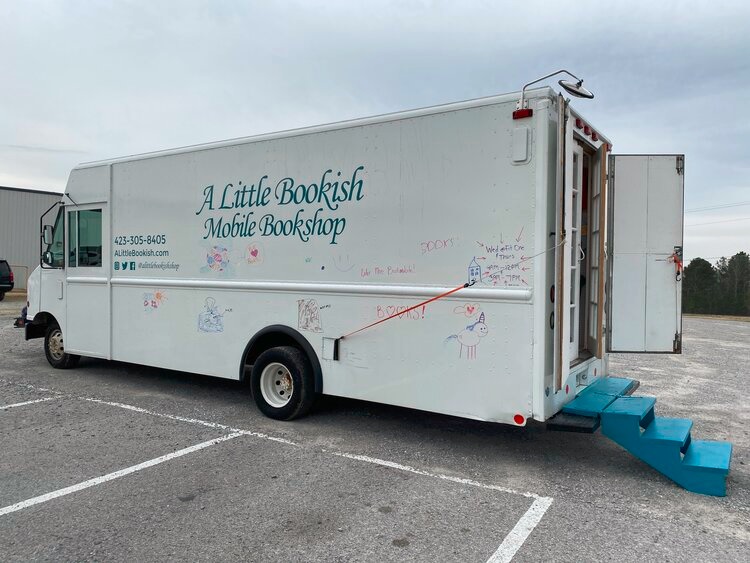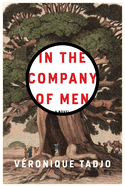 Véronique Tadjo (Far from My Father) could not have known how prescient her novel, originally published in France in 2017, would be just a few years later when it was translated for English readers. In the Company of Men gives polyphonic voice to those affected by the 2014-2016 West African Ebola outbreak that ravaged populations in Guinea, Liberia and Sierra Leone. According to Tadjo's ending timeline note, the final toll for those three countries included 28,646 infected, of which 11,323 people died. The pandemic then--albeit with exponentially higher fatality rates--carries eerie resonance for coronavirus-constricted readers worldwide.
Véronique Tadjo (Far from My Father) could not have known how prescient her novel, originally published in France in 2017, would be just a few years later when it was translated for English readers. In the Company of Men gives polyphonic voice to those affected by the 2014-2016 West African Ebola outbreak that ravaged populations in Guinea, Liberia and Sierra Leone. According to Tadjo's ending timeline note, the final toll for those three countries included 28,646 infected, of which 11,323 people died. The pandemic then--albeit with exponentially higher fatality rates--carries eerie resonance for coronavirus-constricted readers worldwide.
In an unnamed village, a girl is sent away to the city with her father's ominous warning, "Don't ever come back here," which proves to be both a death sentence and the chance to be her family's sole survivor. Just a month before, "two mischievous young boys"--her brothers--went hunting, shot and roasted their prey, not realizing the consequences of eating bats infected with an insatiable virus. Disease spreads, and the whispering tree--the "Baobab, the first tree, the everlasting tree, the totem tree"--observes as it has done for centuries, bearing witness to humans' history of need and joy, celebration and rage, greed and kindness, birth and death. As Ebola rages, the tree watches the horrific devastation, with the promise, "I want to tell their stories."
Those stories, divided into 10 urgent voices, become "Fight with All Your Might Fight Some More," the densest of Tadjo's chapters. From a doctor at the forefront of treating victims who is taking all the possible precautions to stay alive to the "Congolese researcher who discovered the Ebola virus right here in my home country," Tadjo hightlights healers, the sickened, parents, orphans, pariahs. Most die, but some survive; in these most desperate situations, some retain their humanity, others do not. Beyond "the company of men," Tadjo allows even the virus itself, the contagion-carrying bats and, once more, the whispering tree to speak.
From Côte d'Ivoire, Tadjo writes with a stark simplicity, interweaving history, myth and poetry with real life-inspired testimony. While her novel might be light in page count, its lingering significance highlights the human(e) reactions in the face of impossible, fatal situations. How to save one's own life, to save the lives of loved ones, to save strangers, how to live on alone--the questions and challenges haunt long after book's end. --Terry Hong, Smithsonian BookDragon
Shelf Talker: Véronique Tadjo's stark novel exposing the Ebola crisis in West Africa has resonating significance amidst the worldwide pandemic.
 "The twin pillars of independent bookstores are browsing and community.... Bookstores--places that nurture learning and discussion, champion diverse voices and ideas, celebrate language, treasure knowledge and connect the past with our chaotic present to show us how we might go forward--are more needed than ever. We must do everything we can to support them now, before it is too late because they are hubs of building what Martin Luther King Jr. called the Beloved Community, centered on justice, equality and love."
"The twin pillars of independent bookstores are browsing and community.... Bookstores--places that nurture learning and discussion, champion diverse voices and ideas, celebrate language, treasure knowledge and connect the past with our chaotic present to show us how we might go forward--are more needed than ever. We must do everything we can to support them now, before it is too late because they are hubs of building what Martin Luther King Jr. called the Beloved Community, centered on justice, equality and love."














 Quill & Quire spoke with Catherine Ellsmere, co-founder (with Nicki Breuer) of
Quill & Quire spoke with Catherine Ellsmere, co-founder (with Nicki Breuer) of  Angus Yuen-Killick, whose children's book publishing career includes key positions with Macmillan Children's Publishing Group, Penguin Young Readers Group, Disney Publishing, and DK, is creating his own children's publishing company,
Angus Yuen-Killick, whose children's book publishing career includes key positions with Macmillan Children's Publishing Group, Penguin Young Readers Group, Disney Publishing, and DK, is creating his own children's publishing company, 

 "
" The New Chameleons: How to Connect with Consumers Who Defy Categorization
The New Chameleons: How to Connect with Consumers Who Defy Categorization Véronique Tadjo (Far from My Father) could not have known how prescient her novel, originally published in France in 2017, would be just a few years later when it was translated for English readers. In the Company of Men gives polyphonic voice to those affected by the 2014-2016 West African Ebola outbreak that ravaged populations in Guinea, Liberia and Sierra Leone. According to Tadjo's ending timeline note, the final toll for those three countries included 28,646 infected, of which 11,323 people died. The pandemic then--albeit with exponentially higher fatality rates--carries eerie resonance for coronavirus-constricted readers worldwide.
Véronique Tadjo (Far from My Father) could not have known how prescient her novel, originally published in France in 2017, would be just a few years later when it was translated for English readers. In the Company of Men gives polyphonic voice to those affected by the 2014-2016 West African Ebola outbreak that ravaged populations in Guinea, Liberia and Sierra Leone. According to Tadjo's ending timeline note, the final toll for those three countries included 28,646 infected, of which 11,323 people died. The pandemic then--albeit with exponentially higher fatality rates--carries eerie resonance for coronavirus-constricted readers worldwide.